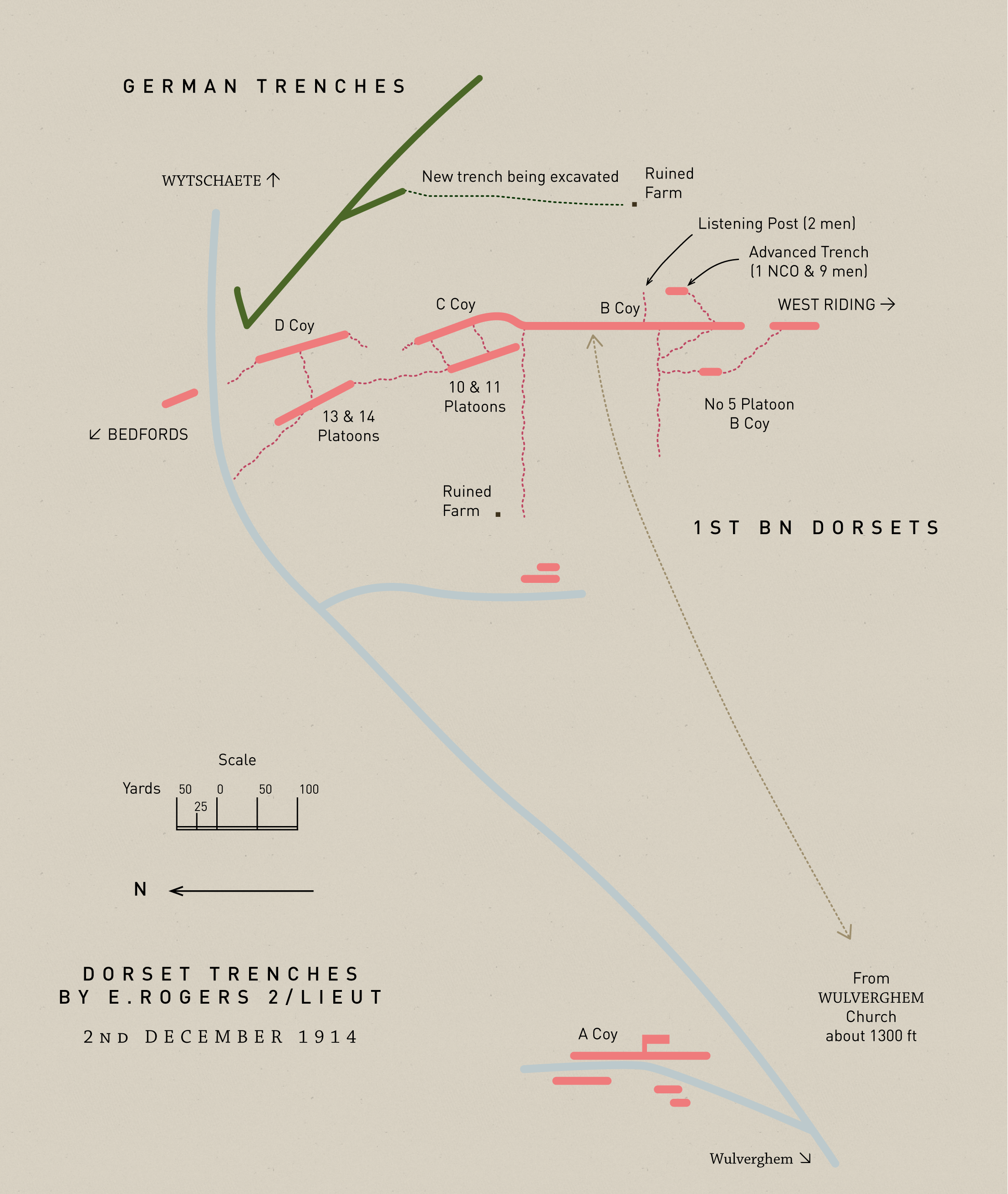14th December 1914
You may have noticed yesterday, but we finally have a name to put to one of the censors. E. Rogers is revealed to be Censor No. 1611. He’s the Second Lieutenant who drew the map of the trenches on the 2nd December. We are pretty sure he’s an officer in A Company and here he’s probably revealed as being Frank’s platoon officer. That’s an incredibly granular piece of information and if I can find some history about E.Rogers it will help fill out more of Frank’s journey. But I cannot find anything about him, other than a name on a medal roll.
How the censor numbers were organised, I can only guess at. The officers weren’t always reading the letters though. Sometimes the officer in charge of censoring letters would leave them unread. This is explored in this Spartacus Educational article. Other times the censor stamp was passed onto an NCO to take care of the duty. I don’t have the originals of Frank’s letters but I am sure Geoff would have written a note if any of them been edited by a censor.
The main thing Frank has to complain about, in his second letter from yesterday, is the price of beer. Beer had increased to 3d a pint in 1914, mainly due to the huge jump in duty imposed on a barrel of beer by the government in November of that year: up from 7s. 9d to 23s per barrel. All these facts are taken from the European Beer Guide website.
By 1920 beer was was 6d a pint. Interestingly, the average strength of beer reduced in that time by a quarter, from a strong 1051 OG in 1914 to 1038 OG in 1920 (about the average for today’s dreary lagers.)
All of this change conspired to reduce drunkenness. In fact convictions for drunkenness fell from 183,828 in 1914 to just 29,075 in 1918.
At 6am the Dorsets marched with the rest, or what the war diary rather tellingly describes as “the remainder”, of the 15th Brigade. Their destination was a field just to the west of Dranoutre.
Here they waited until it got dark before moving to Neuve Église. But they didn’t leave the field without some difficulty. Such was the state of the wet ground that over time they must have sunk into the Flanders mud and they struggled to get anywhere. It must have been a miserable day for Frank.
Why were they even moving? I think it had to do with II Corps launching an offensive alongside the French against Wytschaete, Messines and Petit Douve farm. It came to nothing but 264 deaths over the next couple of days, according to the CWGC.
Had Frank been in the trenches, the day would have been even more miserable.

